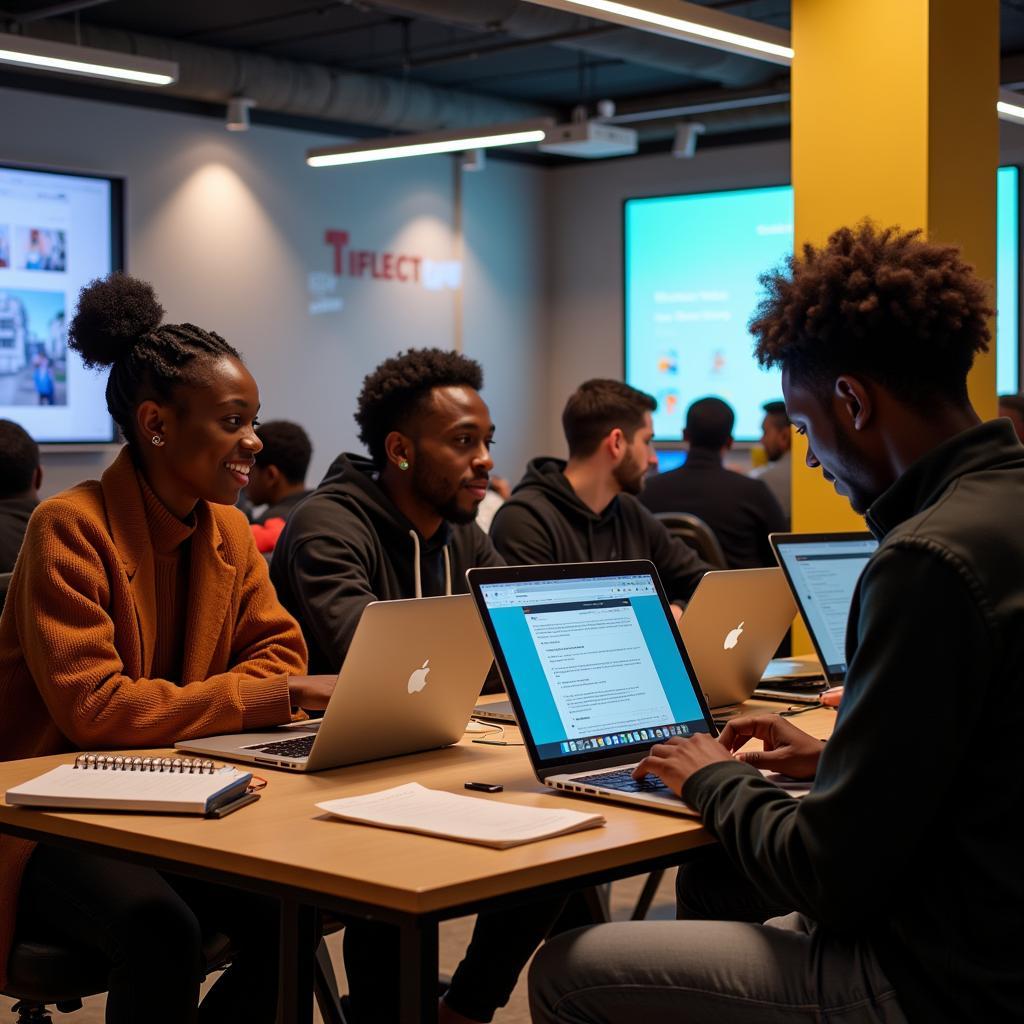African American PhDs in Computer Science: Breaking Barriers and Shaping the Future
The pursuit of knowledge and the drive to innovate know no bounds, especially in the realm of computer science. African Americans have made significant strides in this field, with many earning PhDs and contributing to groundbreaking advancements. This journey is marked by determination, resilience, and a passion for pushing boundaries, paving the way for future generations of Black scientists and engineers.
The Journey to a PhD: Challenges and Triumphs
The path to a PhD in computer science is often demanding, requiring years of rigorous study, research, and dedication. For African Americans, this journey is further complicated by systemic barriers, historical inequities, and a lack of representation within the field. However, these challenges have fueled a spirit of perseverance and innovation, driving many to excel in their academic pursuits.
Overcoming Underrepresentation and Bias
“The lack of diversity in computer science is a real problem,” states Dr. Anika Johnson, a prominent African American computer scientist and professor at Stanford University. “It’s crucial to create an inclusive environment where Black students feel supported and empowered to pursue their passions.”
One of the most significant hurdles faced by African American PhD candidates is the underrepresentation of Black professors and mentors within the field. This lack of role models can lead to feelings of isolation and a lack of guidance, making it challenging for students to navigate the complexities of academia. However, the number of African American PhDs in computer science is gradually increasing, with growing support from organizations and institutions dedicated to fostering diversity and inclusion.
Leading the Way in Innovation
African American PhDs in computer science have made significant contributions to various areas of the field, from artificial intelligence and machine learning to cybersecurity and data science. Their groundbreaking research is shaping the future of technology and its impact on society.
Advancing Artificial Intelligence and Machine Learning
Dr. Kwame Boakye, a PhD in computer science from MIT, is at the forefront of research on artificial intelligence and machine learning. His work focuses on developing algorithms that can learn from data and make predictions with greater accuracy.
“My research aims to address bias and fairness in AI systems, ensuring that these technologies benefit all communities equitably,” explains Dr. Boakye. “We need to ensure that AI is developed and deployed responsibly, considering the potential impacts on marginalized groups.”
Transforming Cybersecurity and Data Science
Dr. Maya Robinson, a PhD graduate from UC Berkeley, has dedicated her research to advancing cybersecurity and data science. Her work focuses on developing innovative solutions to protect sensitive data from cyber threats and ensuring the privacy of individuals.
“It’s crucial to empower individuals with the tools and knowledge to protect their data and ensure their digital security,” Dr. Robinson emphasizes. “My research aims to create a more secure and equitable digital landscape for everyone.”
Inspiring Future Generations
The achievements of African American PhDs in computer science are a testament to their talent, dedication, and resilience. Their journey is a beacon of hope for future generations of Black scientists and engineers, inspiring them to pursue their dreams and contribute to the world of technology.
Breaking Barriers and Fostering Inclusion
The increasing number of African American PhDs in computer science is a positive sign of progress. It demonstrates that systemic barriers can be overcome with determination and a collective effort to foster a more inclusive and equitable academic environment.
FAQs
1. What are some common challenges faced by African American PhD candidates in computer science?
Common challenges include underrepresentation of Black professors and mentors, limited access to research opportunities, and systemic bias within the field.
2. What are some organizations supporting African American students in computer science?
Organizations like the National Society of Black Engineers (NSBE) and the National Center for Black Studies in Science and Technology (NCBST) provide mentorship, networking, and resources for Black students in STEM fields.
3. How can we promote diversity and inclusion in computer science?
Promoting diversity and inclusion requires creating a more welcoming and supportive environment for Black students, increasing representation of Black professors and mentors, and addressing systemic bias within the field.
4. What are some key areas of research that African American PhDs in computer science are focused on?
Key areas include artificial intelligence, machine learning, cybersecurity, data science, and software engineering.
5. What is the impact of African American PhDs in computer science on society?
Their research is shaping the future of technology, addressing critical societal challenges, and creating a more equitable and inclusive world for everyone.
6. What are some resources for African American students interested in pursuing a PhD in computer science?
Resources include online communities, university programs, mentorship opportunities, and scholarship programs specifically designed to support Black students in STEM fields.
Conclusion
The contributions of African American PhDs in computer science are invaluable, driving innovation, pushing boundaries, and inspiring future generations. Their journey exemplifies the power of resilience, determination, and a commitment to making a positive impact on the world. As we continue to strive for a more equitable and diverse future in computer science, their accomplishments serve as a reminder of the potential and power that lies within all individuals, regardless of race or background.


